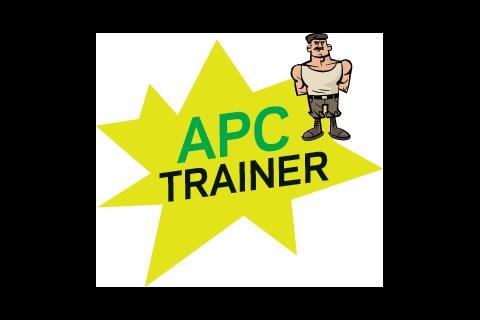For first-year APC students, it’s almost time for the first formal sitdown with your supervisor. Jon Lever explains how it works
If you are a first-year APC candidate, your first big milestone is coming up – the three month meeting. This is the first official sitdown between you and your supervisor.
I would expect a candidate and supervisor to speak weekly at least, as the supervisor is generally the candidate’s line manager or similar. But the three month meeting is seen by the RICS as the first formal review that is documented as part of the APC process. The aim of the meeting is to take stock of how you’re doing. Here’s how it should work …
The candidate
You should think about what information you need to give your supervisor to allow them to make an informed decision regarding your progress. I always suggest sending this information to the supervisor a week in advance of the planned meeting. Candidates should identify relevant experience that can be discussed with the supervisor.
The supervisor
The supervisor should not take their role lightly. They need to be up to speed with the APC/ATC requirements and competencies guide and relevant pathway guides as well as the competencies that their candidate has declared.
The supervisor needs to challenge the candidate and test their competence, knowledge and experience. When it comes to signing off competencies I believe the supervisor puts their professionalism on the line when confirming that the candidate has taken on board the required projects, processes and tasks.
The counsellor does not play a formal part in the process at this stage; however, I always suggest that it is beneficial if they are a party to these meetings if at all possible.
The documents
There is no substitute for good documentation. You need written evidence showing a balanced range of experience across your declared competencies. The assessor will be looking for clear evidence that experience can be matched up against the relevant competency.
Diary and logbook Make sure you record concise and accurate descriptions of your experiences. A short sentence will suffice but make sure it includes references to real projects, an overview of the task and other key words. Why not include a file reference for the relevant project so you can return to project files later to refresh your memory?
Professional development You should have achieved approximately 12 hours of professional development by now. It should be a collection of well planned events such as seminars, networking, research and the reviewing of relevant articles.
Final assessment documentation Record experience against each competency level as time passes; do not leave it until the end to write this up hoping that you will be able to remember every piece of experience. I would advise all candidates to have this record of their experience ready for each three monthly meeting to demonstrate what has been achieved for each level of competency.
Reviewing competency
Competency achievement is not just a box-ticking exercise. You must only sign off the candidate if real life experience and evidence can be demonstrated.
Supervisors should discuss candidates’ experience and ask them to explain what they have been doing, not just assume that the right experience has been accrued because the candidate has documented it. Delve into the depth of the knowledge and experience that the candidate has had and make a careful judgment whether to sign off competencies or not.
Also, competencies need to be reviewed and signed off over time to demonstrate to the assessors that the candidate has achieved a well-balanced range of experience during their training period.
The final flag
The end of the three month meeting comes when everything has been discussed and the three month meeting report has been drafted. Ultimately the meeting should deliver the following:
- The candidate documentation is up to date
- The candidate has been probed and tested on competency experience to date
- The relevant competency and levels are achieved
- The documentation has been reviewed. Any skills gaps have been highlighted and a plan has been produced for the continuing recording of competency experience.
What’s more …
It is a good idea to get involved with the RICS. RICS matrics (www.rics.org/matrics) is a good way to meet APC candidates. It is important for your development to meet fellow professionals. You should also attend RICS’ regional events.
Don’t forget: anything you get involved in could be relevant to your professional development, and the RICS’ involvement is often seen in a positive light in your final assessment.
The safety audit trail
Ben Elder explains one way to show you’re on the ball with a vital APC competenceHealth and safety might make you yawn but it’s often something you have a moral obligation to think about, if not a legal one. Of course there is a wide variety of issues around this subject, depending on where you work and the type of work you do. This is particularly challenging for the chartered surveyor as we often work in a wide variety of circumstances in a single day.
The best way to demonstrate competence in health and safety for the purposes of your APC is to keep a record of what you do. For example, before entering any property or site we all naturally undertake a risk assessment but it is often informal and goes unrecorded – you look round for obvious dangers, such as an unleashed dog or a bull in a field. Too many of us fail to write this down in a site note, but it only takes a second and produces an audit trail that proves that you have got to grips with health and safety procedures. Give examples of your experience in your interview presentation and use your audit trail to show how what you have done reflects relevant regulations and legislation.
I recommend you have a full understanding of your company’s policy and the RICS publication, Surveying Safety: Your Guide to Personal Safety at Work, which can be downloaded from the RICS website.
Ben Elder is director of business development at the College of Estate Management
Postscript
Jon Lever is managing director of DeLever, APC chairman of assessors, RICS training adviser and RICS-licensed assessor trainer. Look out for his guidance on what to do in the lead up to the final assessment every month at www.building.co.uk. DeLever’s website is www.delever.com
Original print headline: The hot seat


























No comments yet